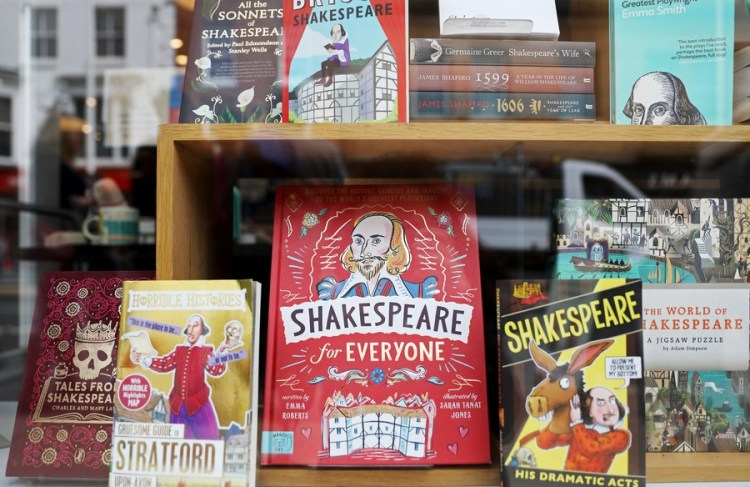What Shakespeare Can Teach Us About China-EU Relations

By cultivating our empathy, we can also achieve a measure of greatness in moving forward in our global quest for sustainability and a stable and prosperous future for Europe, China, and the world.
In 2022, Europe stands at a historic juncture, and its decisions on political and economic partnerships will shape Europe and the world for decades to come. Moreover, sustainability increasingly and unavoidably underlies and shapes these political and economic choices.
According to Nicolas Chapuis, the EU’s ambassador in China, high-level dialogues between China and the EU are expected to occur in the coming weeks. “We need to talk, and we need to find where we can solve issues. For this, we need to have a shared account of facts which is missing today sometimes,” he noted. But solving common issues requires more than just a shared account of facts, and William Shakespeare may offer important lessons on a better way forward.
Shakespeare is viewed as making the most significant and most enduring contributions to the canon of literature in the English language. Given his importance, his life and work are widely studied and analyzed, so we can better appreciate his work and understand why he is excellent.
Many academics cite his remarkable ability to create new words to explain his stature. For example, well over two thousand English words were first recorded by Shakespeare, either plucked out or invented by him. However, I contend that the actual source of his greatness lies in his ability to truly and deeply understand people from every station of life, from the noblest monarch to the plainest commoner and every personality type, from the naive and softhearted to the worldly and calculating. Therefore, his greatness lies in his empathy.
A famous American movie is based on a line from one of Shakespeare’s sonnets: “Love Is a Many-Splendored Thing.” And like love, sustainability is a many-splendored thing. It is also a many-faceted thing. The UN World Commission on Environment and Development defines sustainability as “development that meets the needs of the present without compromising the ability of future generations to meet their own needs.” But we usually view sustainability mainly through the lens of the environment because a basic assumption of sustainability is that resources are finite, and should be used conservatively and wisely with a view to long-term priorities and consequences of how resources are used.

However, sustainability is a multi-splendored and multi-faceted thing. Besides the economic facet, which the United Nations explicitly recognizes, we must also consider the political, domestic, international, and human characteristics. Without solutions politically acceptable to domestic and global constituencies which can be sustained through transfers of political power, sustainability can’t, well, be sustained for very long. Similarly, ultimately sustainability requires, in essence, individuals’ willingness to adopt behavioral changes to effect lasting change.
Moreover, especially in the case of China and Europe, there are many different types of players at times pursuing other objectives, seeking to express different values, and holding different beliefs about how the world should work and how it actually does work.
So, this brings us back to the idea of empathy and, in particular, strategic empathy and its opposite, strategic narcissism. In the words of a former American military leader, “Strategic narcissism is the tendency to define challenges to national security as we would like them to be and to pay too little attention to the agency that others have over the future.”
On the other hand, strategic empathy calls for imagining the hopes, dreams, desires, and fears of others. A chess player only has to foresee an opponent’s moves. One practicing strategic empathy has to leverage the wishes of others to create positions that will win friends, supporters, and allies.
The gift of empathy is a purely human attribute. It doesn’t come from our senses. It comes from our self-awareness. Most animals have keener senses than we do, but their strategies are limited to flight or fight because they lack the depth of self-awareness needed for genuine empathy. They cannot imagine the range and variety of desires we humans can. Good strategy begins with our ability to imagine the range and variety of desires in others that allows us to accomplish our goals.
Both China and Europe have recognized the multi-splendored nature of sustainability. But they have also recognized the complexity in its multiple facets and how it encompasses so many human differences. Only through the application of strategic empathy can these differences be bridged. What made Shakespeare great was not his verbal virtuosity but his ability to truly understand so many varied characters and facets of the human experience. By cultivating our empathy, we can also achieve a measure of greatness in moving forward in our global quest for sustainability and a stable and prosperous future for Europe, China, and the world.
Andy Mok is a Senior Research Fellow at the Center for China and Globalization.
 Facebook
Facebook
 Twitter
Twitter
 Linkedin
Linkedin
 Google +
Google +










